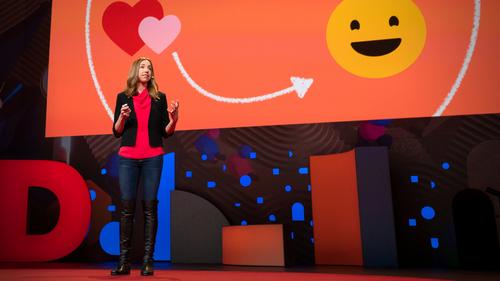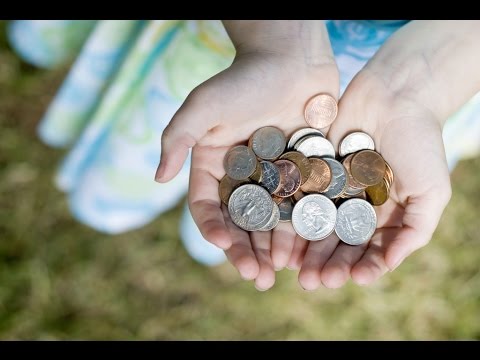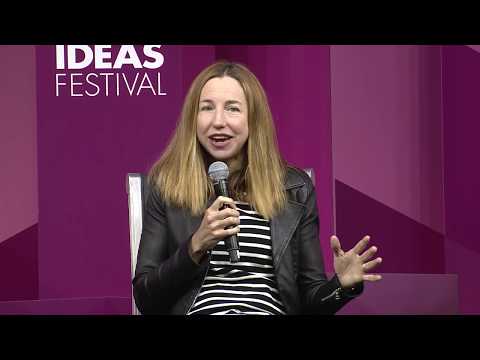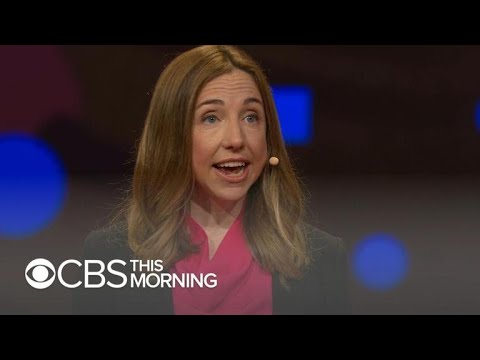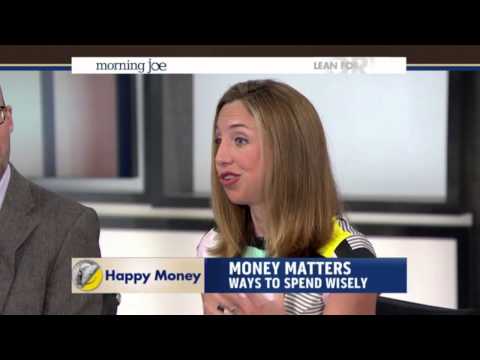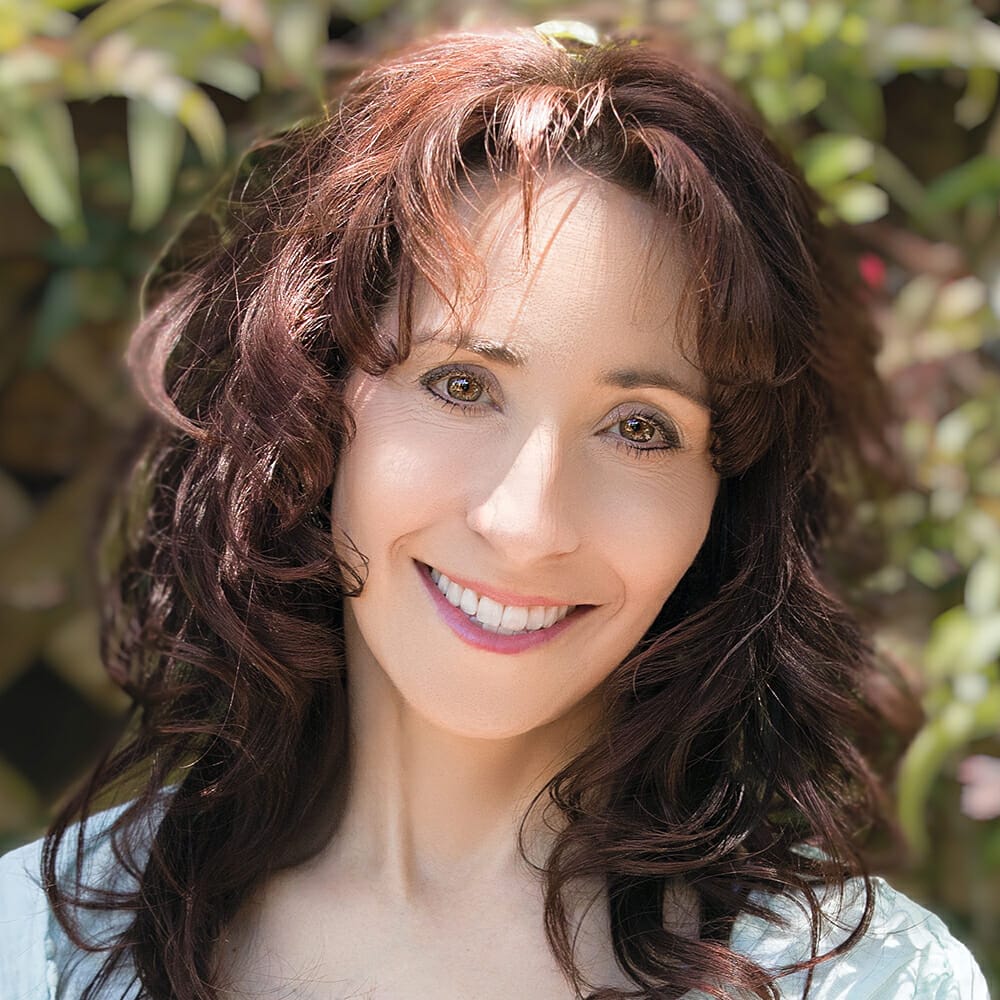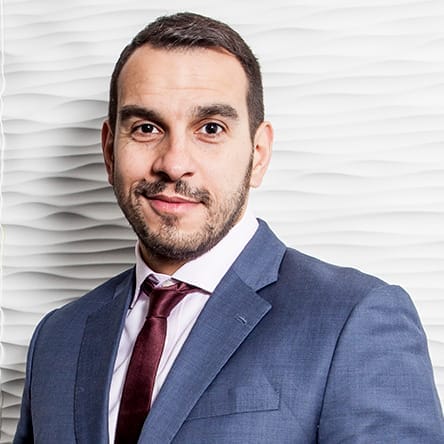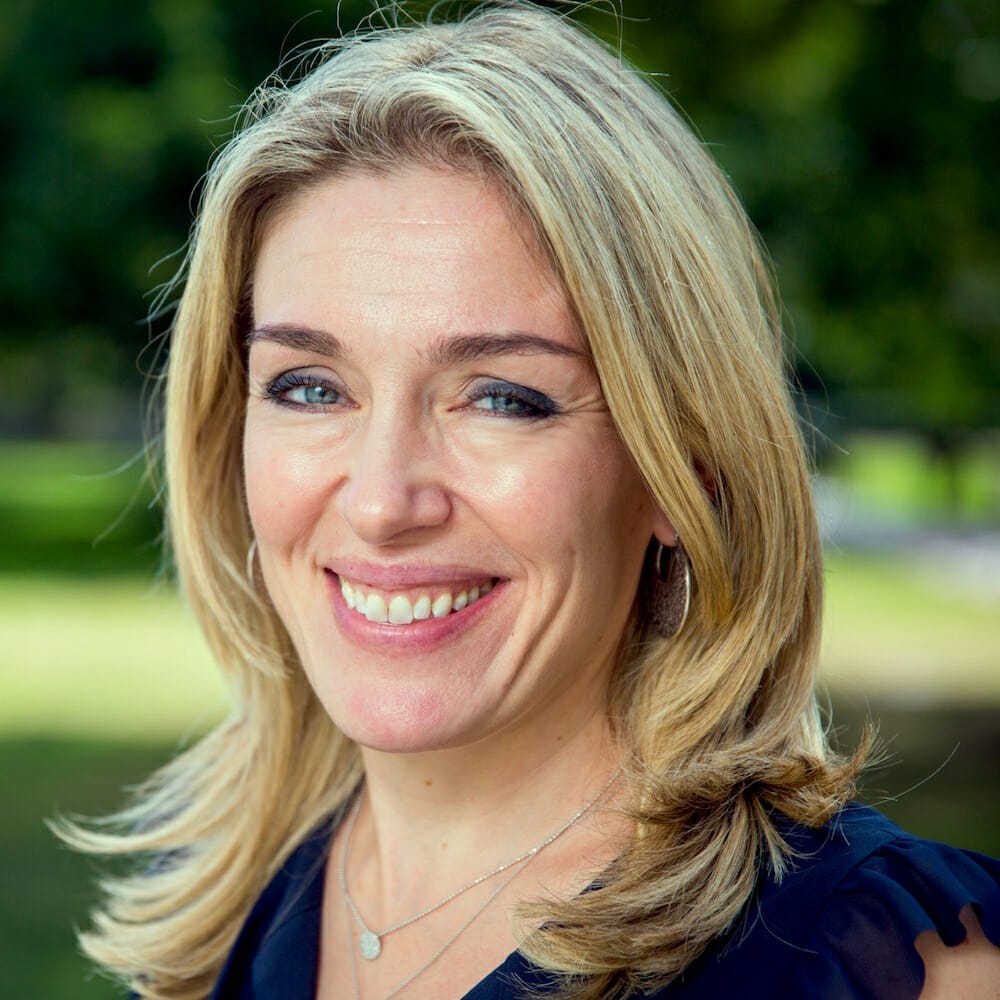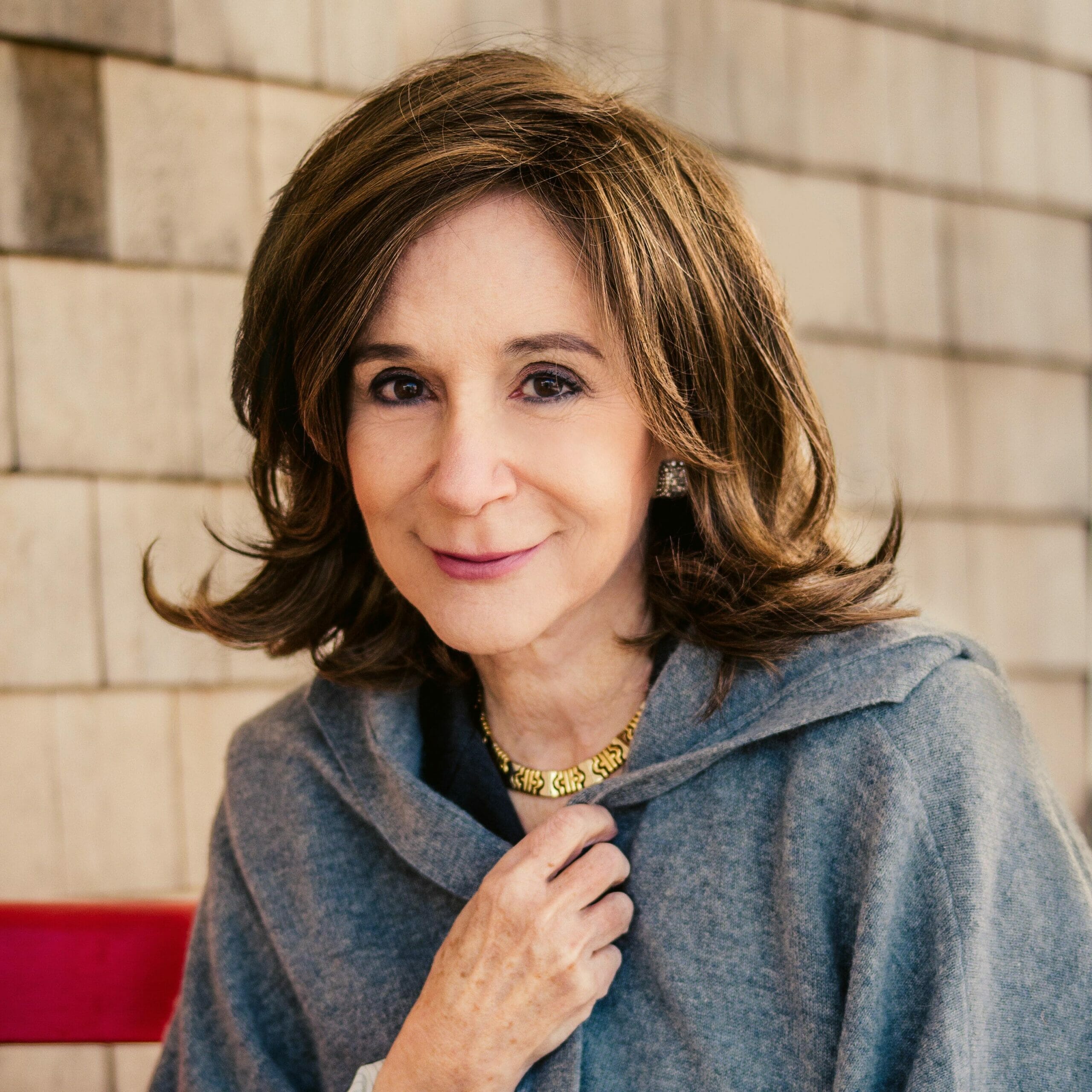Videos
Learn More About Elizabeth Dunn
Why is it so important for business leaders to recognize what makes people happy?
“Organizational leaders are increasingly recognizing that employee happiness is an important goal,” says Elizabeth Dunn, Ph.D., leading happiness and well-being researcher and professor in the department of psychology at the University of British Columbia (UBC). “If you have happy employees, you’re going to have less turnover and you’re going to have more productive, committed workers.”
In addition to ensuring employees are content, Dunn shows that businesses spanning a wide variety of sectors can take an active role in boosting customer happiness as well: financial advisors, banks and credit unions can give customers guidance on practical ways to invest and spend their money that will bring the most joy. Housing developers and construction businesses can create living spaces that support happiness. And of course, marketers can spread uplifting messages.
Dunn’s investigations at UBC’s Social Cognition and Emotion Lab, affectionately called “The Happy Lab,” focus on how to optimize scarce resources – such as time, money and technology – to enhance happiness in life and at work.
An Enduring Organizational Resource: Social Connections at Work
According to Dunn, one of the main keys to unlocking employee happiness is to build a sense of connection with colleagues. With the changing structure of workplaces over the last few years, including teams being spread across geographies, she provides organizations with science-backed strategies for creating bonds within workplaces.
“We know that feeling a sense of connection with the people that you see every day is critically important for happiness,” explains Dunn. “Building strong personal connections creates this enduring resource that continues to be helpful in more difficult times.”
Through enlightening, highly interactive workshops, Dunn leads teams through practical exercises that allow participants to let down their guard, learn about each other and strengthen their interpersonal connections in the process.
Happiness ROI: Giving Money vs. Receiving It
The common saying is that money can’t buy happiness. But what if, spent well, it could? Dunn’s research at The Happy Lab has shown there is a scientifically proven way for money to impact personal joy – by giving it away. Dunn is co-author of “Happy Money: The Science of Happier Spending” (2014), which was named a top book for financial leaders by The Washington Post. She outlines five principles — from choosing experiences over stuff to spending money on others—to help individuals get more happiness from their money, and to help companies create happier employees and provide “happier products” to their customers.
Dunn’s insightful TED Talk on how helping others can make us happier has been viewed more than four million times. In it, she urges audiences to reconsider giving, thinking of it not simply as a moral obligation but as a source of pleasure.
“People tend to think that getting money for themselves would be really great,” explains Dunn, whose research shows that giving away as little as $5 can spark satisfaction. “Instead, what we see in our research is that often, when people use money to benefit others, they actually get the biggest return on investment in terms of the happiness gained.”
Boost Happiness by Helping to Slow Climate Change
In an innovative marriage of two of today’s most important topics – happiness and climate change – Dunn encourages organizations to create an ecosystem where employees are able to live more sustainable and happier lives. Based on research that’s being adapted into an upcoming book, “The Joy of Climate Change,” her highly interactive “Happy Climate” workshop introduces strategies that empower individuals to adopt sustainable behaviors.
“Many people are anxious about climate change,” she explains. “Our Happy Climate workshop highlights how re-thinking the way we approach food, work and travel can enhance well-being by identifying the most feasible, impactful and emotionally rewarding changes we can make as individuals to support sustainability.”
In a time when complex global issues impact our daily moods and decisions, Dunn provides leaders with simple, practical ways to be a source of happy living for both the people in their organizations as well as customers. By structuring everyday life to support ongoing employee happiness, businesses become appealing places to work and can create lasting customer loyalty in the process.
###
Elizabeth Dunn, Ph.D., is a professor in the Department of Psychology at the University of British Columbia. She conducts experimental research examining how time, money and technology shape human happiness. Her TED talk on generosity and joy was named a 2019 Curator’s Pick, and she has given popular talks at PopTech! and TEDx.
Dunn’s work has appeared in top journals, with three papers published in Science. Her book, “Happy Money: The Science of Happier Spending” was selected by The Washington Post as top book for financial leaders. Her research has been featured in hundreds of media outlets around the world, including The New York Times, The Globe and Mail, The London Times, The Atlantic, Time and CNN.
Elizabeth Dunn is available to advise your organization via virtual and in-person consulting meetings, interactive workshops and customized keynotes through the exclusive representation of Stern Speakers & Advisors, a division of Stern Strategy Group®.
How to Buy Happiness
The common saying is that money can’t buy happiness. But what if, spent well, it could? In this enlightening talk, University of British Columbia Psychology Professor Elizabeth Dunn, a leading expert on how spending habits impact happiness and co-author of “Happy Money,” will outline five principles that show how to get more happiness from your money. For example, her research shows that “buying time” is an underutilized strategy for increasing happiness. Dunn’s presentation includes strategies for individuals and organizations to put this idea into practice immediately. Dunn will explain why splurging on the luxury car won’t necessarily make you happier than going with a more affordable vehicle. Attendees will immediately be able to put Dunn’s strategies into practice by learning that right now, you can spend as little as $5 for an instant happiness boost.
Is Technology Making Us Less Happy?
In a time when we’re all constantly connected through technology, many feel like they can’t live without smart phones and connected accessories. But is our technology actually making us happier? In this eye-opening presentation, University of British Columbia Psychology Professor Elizabeth Dunn, a leading researcher on how time, money, and technology shape human happiness, will explain the hidden costs technology has for our well-being. With the latest insights from her “Happy Lab,” Dunn will share immediately applicable techniques for boosting our happiness and well-being without having to depend on our tech devices.
Build Social Connections at Work to Create an Enduring Resource
How can we increase employee happiness in a time of ever-changing workplace structures? The key, according to University of British Columbia Psychology Professor Elizabeth Dunn, is to build a sense of connection within teams. In this uplifting and interactive presentation, she provides audiences with science-backed strategies for creating strong workplace connections. Dunn explains that a critical aspect to unlocking workplace happiness is to catalyze strong personal connections which creates an enduring resource for the organization that continues to be helpful in more difficult times. Audiences will leave with practical steps for letting down their guard, learning about colleagues and strengthening their interpersonal connections in the process.
Boost Happiness by Helping to Slow Climate Change
As climate change continues to become a more pressing topic by the day, many feel growing anxiety. In this innovative presentation, University of British Columbia Psychology Professor Elizabeth Dunn introduces strategies for adopting behaviors that empower audiences to lead more sustainable lives while making themselves happier at the same time. Drawing from her “Happy Climate” research, Dunn highlights how re-thinking the way we approach food, work and travel can enhance well-being. Audiences will learn simple, practical strategies for identifying the most feasible, impactful and emotionally rewarding changes any of us can make as individuals to support sustainability and boost happiness.
Chatbots and Social Connection: Enhancing Feelings of Connection in the Age of AI
AI-assisted automation and digital chatbots are increasingly integrated into our lives, but how do these artificial interactions affect our feelings of happiness and social connection? Professor Elizabeth Dunn, a renowned expert in social connection at the University of British Columbia, has published groundbreaking research on the consequences of interacting with chatbots. Her research reveals that interacting with well-programmed chatbots can actually make people feel happier and more connected than interacting with humans—under the right conditions. An enthusiastic, engaging presenter, her insights are crucial for business leaders seeking to enhance customer engagement and employee satisfaction in a technology-driven world. She brings valuable strategies to optimize human-chatbot interactions, ensuring these digital tools enhance rather than diminish the quality of social connections in their organizations. Highly interactive in all engagements, she brings a unique perspective on balancing technology and human touch, an essential skill for organizations incorporating AI tools in their strategy.
Insights From the “Happy Lab”
There is a science behind happiness and researchers are working hard on revealing it. In this fascinating presentation, University of British Columbia (UBC) Psychology Professor Elizabeth Dunn, one of the world’s leading happiness experts, will share insights from UBC’s Social Cognition and Emotion Lab, better known as the “Happy Lab.” With the latest research from labs around the world, Dunn will empower audiences with practical strategies that can be put into practice right away to boost well-being in business, at home, and within yourself.

How Can People Become Happier? A Systematic Review of Preregistered Experiments
(Annual Review of Psychology, January 2024)

A Systematic Review of the Strength of Evidence for the Most Commonly Recommended Happiness Strategies in Mainstream Media
(Nature Human Behaviour, July 2023)
The Science of Social Connection
After years of changing our interactions with each other due to social distancing and remote work, people have a renewed hunger for genuine social connections. In this highly interactive workshop, perfect for organizations with remote and hybrid work models, renowned happiness researcher, University of British Columbia Psychology Professor Elizabeth Dunn, will provide participants with an uplifting, science-based toolkit for establishing a genuine sense of connection — in person or remotely. After learning about the science behind several techniques for building connection, attendees will get to practice these techniques one-on-one and in small groups, allowing them to connect with their fellow participants. Attendees will leave the workshop with the bonds among co-workers that typically takes months or even years to build. With tools to help spread a feeling of belonging, participants will be able to bring this warm sense of connection not only to their workplaces, but also to their neighborhoods and communities.
The Joy of Climate Change
As climate change continues to become a greater concern by the day, many are feeling anxiety about the future and what they can do to help. In this highly interactive workshop, University of British Columbia Psychology Professor Elizabeth Dunn will help attendees identify specific, feasible changes they can make in their own lives to effectively address climate change while increasing their individual happiness. Although discussions of climate change often generate anxiety or guilt, this upbeat session will highlight how re-thinking the way we approach food, work, and travel can enhance well-being. After getting some shared knowledge on the table, Dunn will invite attendees to work in small teams, serving as one another’s “carbon consultants” to identify the most feasible, impactful and emotionally rewarding changes each can make to support both sustainability and individual happiness.

